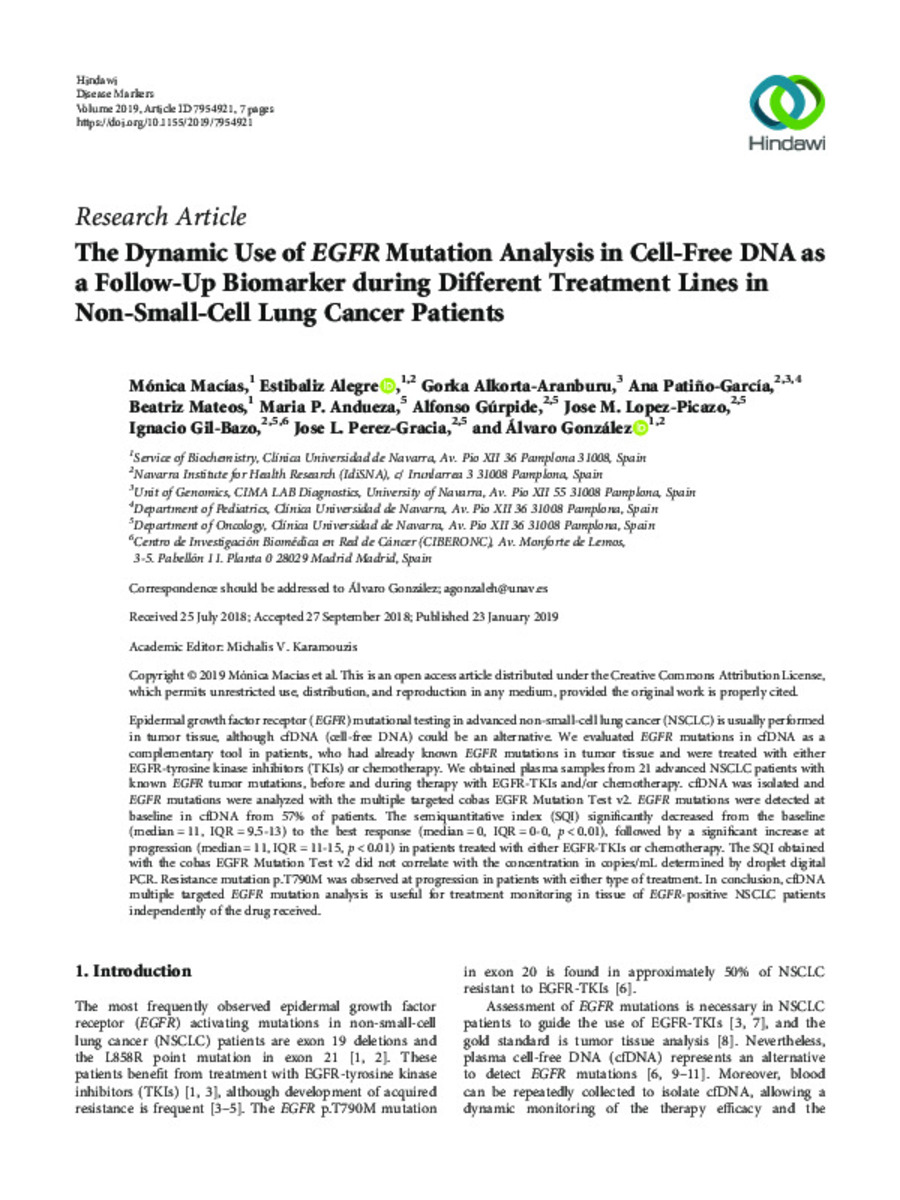The dynamic use of EGFR mutation analysis in cell-free DNA as a follow-up biomarker during different treatment lines in non-small-cell lung cancer patients
Palabras clave :
Epidermal growth factor receptor (EGFR)
Non-small-cell lung cancer (NSCLC
Cell-free DNA
Fecha de publicación :
2019
Editorial :
Hindawi Limited
Nota:
This is an open access article distributed under the Creative Commons Attribution License,
which permits unrestricted use, distribution, and reproduction in any medium, provided the original work is properly cited.
Cita:
Macías, M. (Mónica); Alegre-Martinez, E. (Estibaliz); Alkorta-Aranburu, G. (Gorka); et al. "The dynamic use of EGFR mutation analysis in cell-free DNA as a follow-up biomarker during different treatment lines in non-small-cell lung cancer patients". Disease Markers. 2019, 2019, 7954921
Aparece en las colecciones:
Estadísticas e impacto
0 citas en

0 citas en

Los ítems de Dadun están protegidos por copyright, con todos los derechos reservados, a menos que se indique lo contrario.











